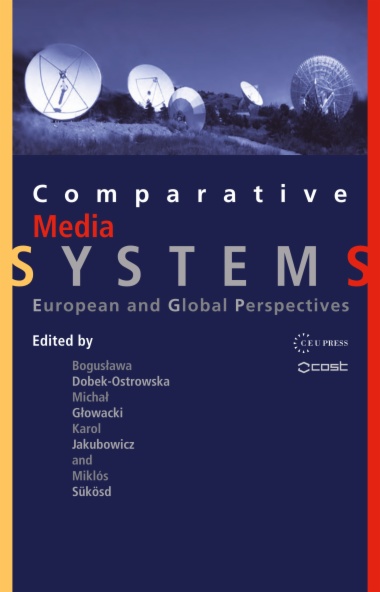Leading researchers from different regions of Europe and the United States address five major interrelated themes: 1) how ideological and normative constructs gave way to empirical systematic comparative work in media research; 2) the role of foreign media groups in post-communist regions and the effects of ownership in terms of impacts on media freedom; 3) the various dimensions of the relationship between mass media and political systems in a comparative perspective; 4) professionalization of journalism in different political cultures—autonomy of journalists, professional norms and practices, political instrumentalization and the commercialization of the media; 5) the role of state intervention in media systems
- Cover
- Title page
- Copyright page
- Untitled
- Table of Contents
- Editors’ Introduction
- Preface
- Introduction: Media Systems Research: An Overview
- Comparing West and East: A Comparative Approach to Transformation
- In Search of a Label for the Russian Media System
- Introducing Turkey to the Three Media System
Models:
The Content of TV News in Eleven Countries
- A Perspective from the South:
Triggers and Signs of Change
- The Reform of the Public Radio and Television System in the United Kingdom and in Spain (2004–2007): A Comparative Analysis
- Public Service Broadcasting in Ukraine:
To Be or Not to Be?
- Actors, Evolution, and Production Models
in the Commodification of Spanish Television
- The Global Journalist:
Are Professional Structures Being Flattened?
- Czech Journalists after the Collapse
of the Old Media System:
Looking for a New Professional Self-Image
- Preserving Journalism
- Main Professional Dilemmas of Journalists
in Poland
- Comparing Media Systems and Media Content:
Online Newspapers in Ten Eastern and Western
European Countries
- Political or Commercial Interests?
Poland’s Axel Springer Tabloid, Fakt, and Its
Coverage of Germany
- Contributors
- Index
- back cover

